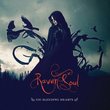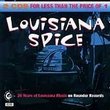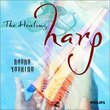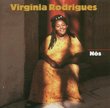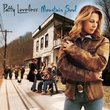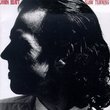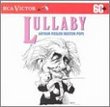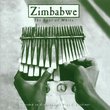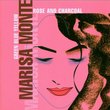| All Artists: Blind Willie Mctell Title: Atlanta 12 String Members Wishing: 5 Total Copies: 0 Label: Atlantic / Wea Release Date: 2/25/1992 Genres: Country, Blues, Pop Styles: Classic Country, Delta Blues, Traditional Blues, Regional Blues, East Coast Blues, Acoustic Blues Number of Discs: 1 SwapaCD Credits: 1 UPCs: 075678236624, 075678236648, 081227879969 |
Search - Blind Willie Mctell :: Atlanta 12 String
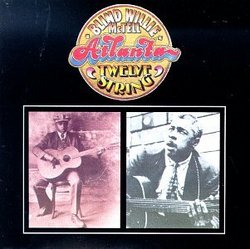 | Blind Willie Mctell Atlanta 12 String Genres: Country, Blues, Pop
Atlantic's short-lived Blues Originals series brought forth some real gems: not just Professor Longhair's New Orleans Piano, but this 1949 session by singer-guitarist McTell. What Bob Dylan heard in McTell, the title subje... more » |
Larger Image |
CD DetailsSynopsis
Amazon.com Atlantic's short-lived Blues Originals series brought forth some real gems: not just Professor Longhair's New Orleans Piano, but this 1949 session by singer-guitarist McTell. What Bob Dylan heard in McTell, the title subject of one of his most fabled songs, is both easy and hard to catch, but there's something eerie in the almost cheerful delivery of songs such as "Dying Crapshooter's Blues." A grand album that forms yet another facet of the label's gemlike catalog. --Rickey Wright Similar CDs
Similarly Requested CDs
|
CD ReviewsHis best "album" boeanthropist | Cambridge, MA | 01/17/2000 (5 out of 5 stars) "I hesitate to call this an "album" because McTell never recorded albums, he recorded sides; but this work stands out so sharply against the two other major periods of his recordings -- the original 20s and 30s sides, and then the "last session" -- what's so amazing about these sessions here is that McTell hadn't been "rediscovered" like so many of the other old bluesman who only a scant few years later would be being taken into the false (though hopefully renumerative) milieu of folk/blues revivalists -- I don't know why this seems to mark these recordings as "purer" than so many others in the 60s, but they are like nothing else. Modern (for the 50s) recording techniques mean a sonic depth which his 20s/30s recordings couldn't have hoped to compete with -- yet unlike the "Last Session," Blind Willie is at the height of his powers. A man, his voice, and a his 12-string. The version fo "Dying Crapshooter's Blues" is peerless, and the version of "Delia" just gut-wrenching -- World-Gone-Wrong-era Bobby Dylan's constant acknowledgement of McTell as a constant wellspring of inspiration (for some of Dylan's darkest material) makes much more sense after this album. Truly one of my own favorites of all time." Sad, brilliant and without peer. Jay Kiiha | Salt Lake City, UT | 02/09/2000 (5 out of 5 stars) "Between the Regal Sessions and these Atlantic Recordings, Blind Willie McTell was at the height of his powers. Although some might disagree, McTell was, I think, the best blues interpretivist of his era. McTell could take an old chestnut like "Last Dime Blues" and rework it into his own signature material. With just a simple break in his voice McTell can bring you to tears. If you are a fan of American Roots music, you owe it to yourself to purchase these Atlantic Sessions. This recording is an essential in any blues lover's collection and may possibly be the best country blues recording of all time." An old bluesman at the top of his game hypnovision | Long Beach, CA | 06/19/2001 (5 out of 5 stars) "It's hard in a way to believe that this disc was recorded in the late 1940's. It sounds like it could have been recorded yesterday and Willie McTell is sitting right there in the room with you. Thank goodness there were some music lovers at Atlantic who captured these great performances.For anyone who has never owned a Blind Willie McTell record, this is the one I would recommend starting with. The sound is great compared to his 30's era recordings, yet his unmistakeable voice and 12-string playing style are every bit as engaging as any he ever recorded.I agree with another reviewer that "Dying Crapshooter's Blues" alone is worth the price of admission. In my humble opinion, it is one of the five greatest blues songs ever recorded. Not only does the song contain many of the great blues themes (death, hard-living, lost love), it also captures the milieu of the bluesman's lifestyle (cathouses, deadly policemen, loaded dice); and it's all pulled off with a mixture of humor and pathos that draws you into the song's world."Dying Craphsooter's Blues" and other great performances on this disc make it an essential album in any blues/folk collection and a wonderful entree into the repertoire of this one-of-a-kind performer."
|

 Track Listings (15) - Disc #1
Track Listings (15) - Disc #1
